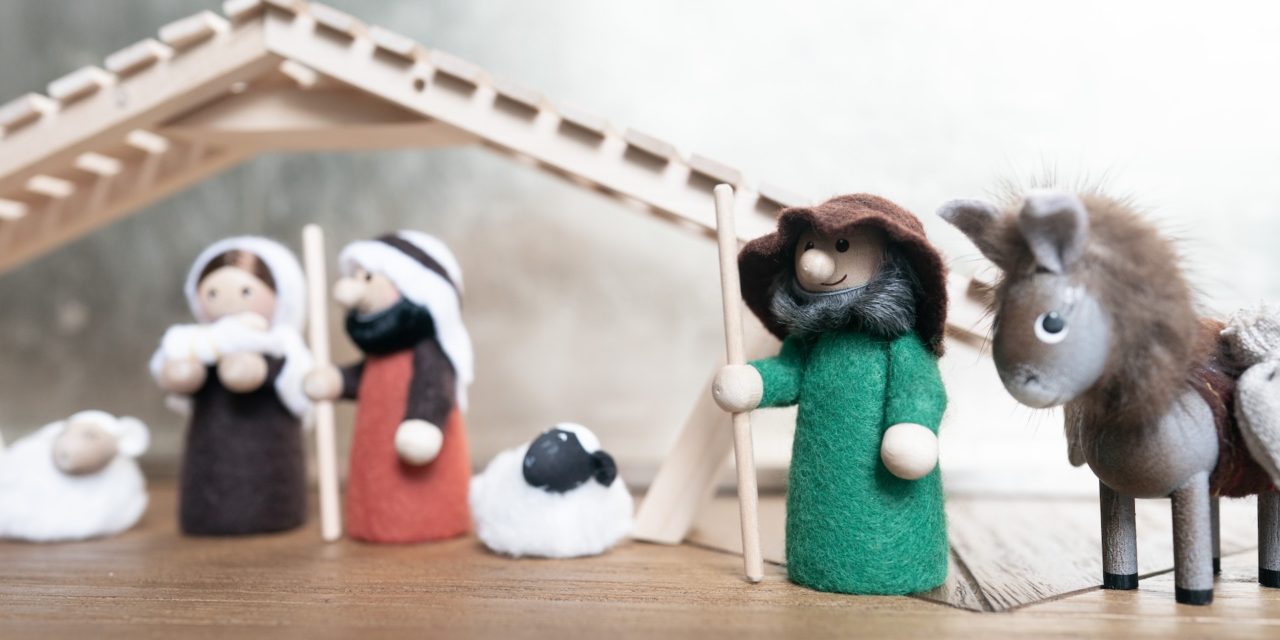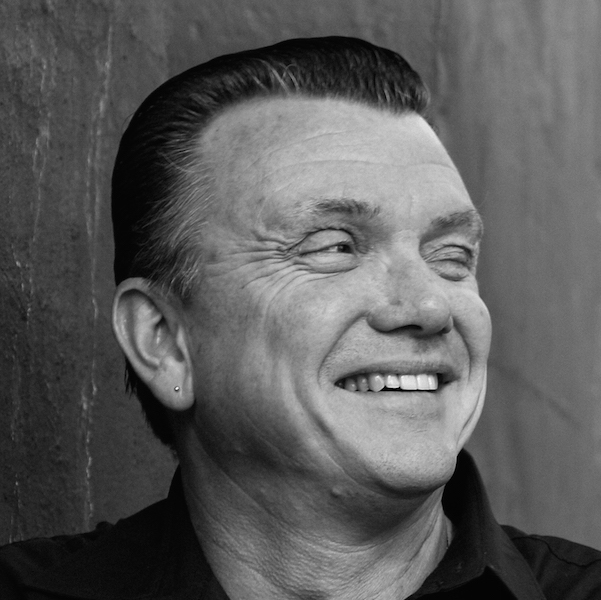When I think of baby messiahs, angelic messengers, shepherds and sheep, I think of a church Christmas pageant when I was in fifth grade. Christmas Pageants were always somewhat painful for me. Even as a child I didn’t think they expressed “God with us”—what theologians call the Incarnation.
Instead, they were just a reminder that I had very little power and few connections in the small town where I grew up. I definitely had no clout with Dorothy Davis. She had directed a high school play once, so she became the church’s pageant director. A self-proclaimed professional, she never did see my hidden potential.
The division of labor was the same almost every year. Sixth and seventh grade boys with even a shadow of facial hair got to be shepherds. They carried big sticks—a rod and staff. Unlike the rod and staff in Psalm 23, theirs were never any comfort. Shepherds got to whack kids that played the sheep whenever they felt like it.
David Davis, Dorothy’s son, and two of his friends, always played the wise men. Dorothy assured the rest of us that this particular casting decision wasn’t nepotism; David just “looked the part.” “You know we need stoic, majestic magi.” She would proclaim. Apparently, this was the director using her artistic license since scripture doesn’t mention the exact number of wise men, let alone their disposition.
My fifth grade year was especially tough. The pastor’s son played Joseph and the choir director’s daughter played Mary. All the “little” kids were angelic beings draped in tinsel. That left the roles of the farm animals for me and my no good friends.
The sheep was the only animal without a paper mache head. If you could avoid getting whacked by the shepherds it wasn’t a bad gig. However, you had to work your way up to that part. This year I had to be the donkey. I had convinced my neighborhood friend Billy Smith to join the fun. He never came to church, but a big sack of candy given out the night of the production was enough of a bribe.
Since I had recruited him, I got to be the head of the donkey and he had to be the backside. Wearing a paper mache donkey head wasn’t bad when compared to resting my face against the bottom of my buddy at each rehearsal. Billy made it to most of the practices and only occasionally socked me hard underneath the donkey costume. We were a team and made the best out of a bad situation.
The glorious night of the pageant came oh so quickly. I sat in the third grade girls’ Sunday school classroom, gray fabric draped around my legs, paper mache donkey head in my hand, and my greatest fear was about to be realized. It was 30 minutes before Showtime and Billy was nowhere to be found. He had grabbed his candy and completely abandoned me.
I would have to beg someone else to partner with me in the donkey costume. I couldn’t lure anyone with the promise of candy; they all had some. My only bargaining chip was to relinquish the head and become the ASS.
Arthur Ditzler was a big sixth grade boy. His close friends and parents said he was “big boned.” He had come to the pageant to get his bag of candy and bail, just like Billy. Against all hope, I pleaded with him to be the donkey with me.
Dorothy Davis walked in, looking at me with disgust. I was a two-legged donkey with no butt and I was about to ruin her pageant. You might be able to do the Christmas story without a cow in the barn, but not without a donkey, and I was all she had. The pageant was on the brink of disaster.
“Please, Arthur!” I begged, “Would you please be the donkey with me!!?”
Arthur looked past me into the dressing room at the donkey head that sat on the craft table. He sighed, reminding me of how alone and dependent I was at that moment.
Then he said, “Sure, I’ll do it.”
“You’ll what?” I cried out in shock.
“I’ll do it, but I should be the back end. I am way bigger than you.”
Arthur saved me that night. He went about as far as a guy could go.
To this day, reflecting on those ridiculous pageants causes me to laugh and cry. The vile shepherds, the arrogant wise men, the director who couldn’t see me as anything but an ass. The recreation of Jesus’ birth at my church heightened my sense of being an outcast.
But I also remember Arthur. His gracious act revealed the true meaning of the Incarnation to me. He became the donkey for me and with me.
The original version of this story was in Ron’s book, The Least of These: Lessons Learned from Kids on the Street, New Hope Publishers, 2010
Cover photo credit: Rod Long


